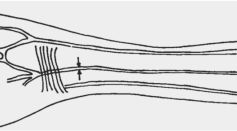Tags: Human evolution
El Niño Phenomenon, Ecosystem Changes in Africa Drove Human Evolution
Isotope Analysis of Teeth Debunks 2,500 Year Old Claim About Ancient Greek's Military
Neanderthal Diet Study Shows They Ate Starchy Foods 600,0000 Years Ago to Fuel Their Brains
2,500-Year-Old Bronze Age Relics Accidentally Discovered in Swedish Forest
Neanderthals Adjusted Well to Cold Climates, Researchers Tell Us How
Modern Human Brain Evolved 1.7 Million Years Ago in Africa [Research]
DNA Shows Early European Migrants Regularly Interbred with Neanderthals
Is There Any Difference Between Today’s Humans, the Neanderthals and the Denisovans?
Discovery of More than 40 Teeth in China Challenges Notions About Human Evolution
Study Suggests Thumbs Helped Evolution Two Million Years Ago

Human Evolution Could Be to Blame for Being Prone to Cancer, Study Says

Human Evolution Evidently Taking Place Among Southeast Asian Free Divers
Here’s How Humans Are Still Evolving

Are Humans Still Evolving Today?

Neanderthal Gene Increases Risk of Severe COVID-19
Scientists Are Bringing Back the Human Tail That Evolution Took Away, But Why?
Was Human Evolution Inevitable or a Chance Occurrence?
Fabelle: Extinct Bone in the Human Body Coming Back
New Species of Humans Discovered in the Philippines
Fossils Of Homo Sapiens From Morocco May Change Dates Of Darwin's Theory of Evolution
Most Popular

Viruses vs Bacteria: Key Differences, How They Spread, and How We Treat Them

Recycling Myths vs Facts: What Actually Gets Recycled and How to Do It Right

Science-Backed Longevity Supplements: The Best Anti-Aging Vitamins for Powerful Healthy Aging Support

Space Debris and Orbital Pollution: Rising Space Junk Threats and Collision Risks Around Earth




